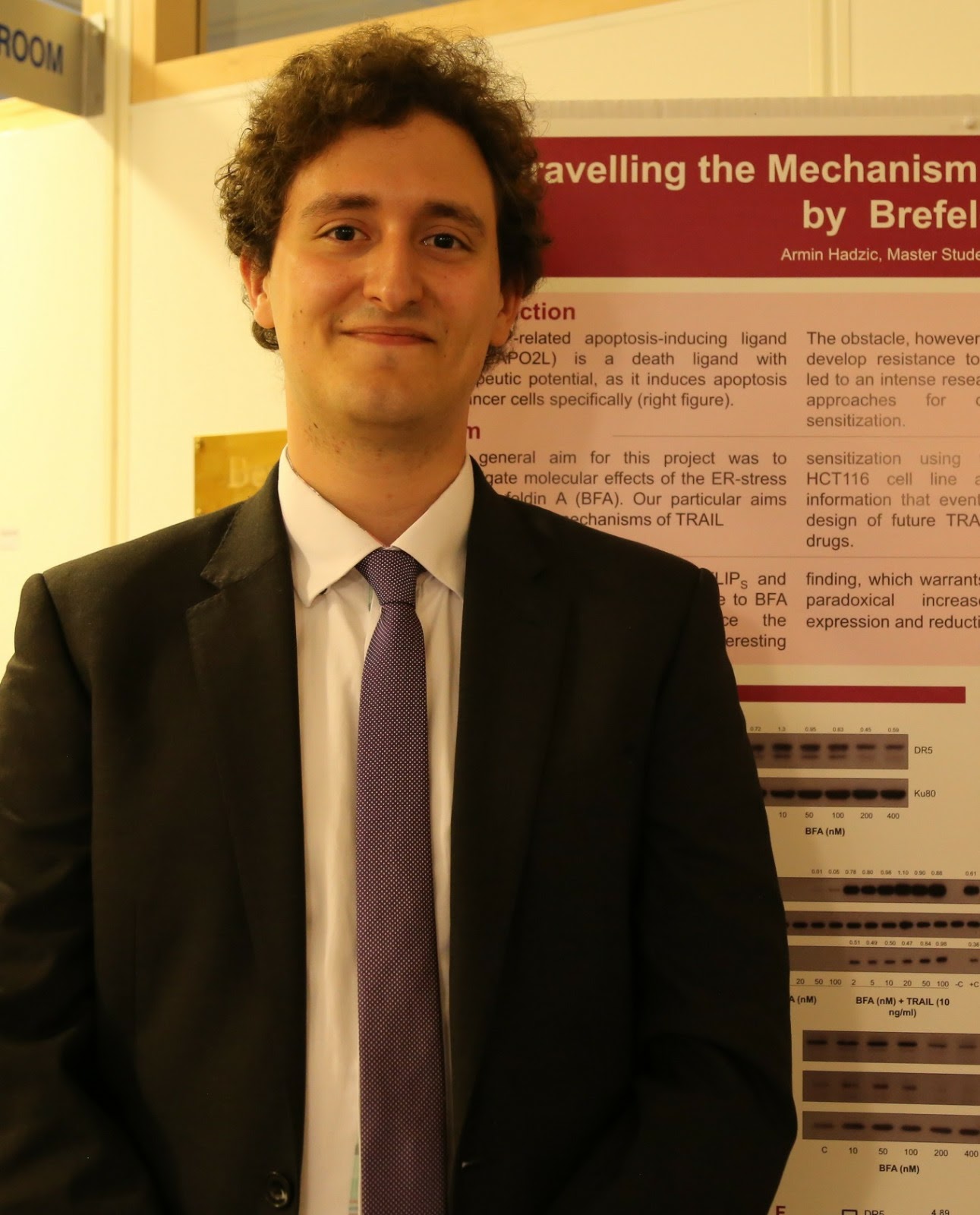Armin Hadzic
Research Interest
Every chromosome in human cells are flanked by a specialised stretch of hexamere repeats called the telomeres. Gradually, the telomeres will shorten by each cell division, and eventually the telomeres will reach a critical limit whereby apoptosis or senescence is induced. The telomeres therefore function as a failsafe to excessive cell proliferation. Consequently, cancer cells must evolve telomere maintenance mechanisms in order for completing one of the hallmarks of cancer, replicative immortality.
Most cancers (~80%) will initiate the reverse transcriptase TERT in order to maintain their telomere lengths. However, the other cancers employ a telomere lengthening mechanism which relies on homologous recombination, called the Alternative Lengthening of Telomeres (ALT). These cancers are usually more aggressive, and show a complex chaotic environment in the genome. The molecular mechanisms that underlie ALT are not well understood, and the potential to use ALT as a therapeutic endpoint is unknown.
My research interest lies in understanding the role of a particular protein called "alpha thalassemia/mental retardation syndrome X-linked", or ATRX for short. A growing body of evidence is suggesting an important role of functional mutations in ATRX in ALT, yet many details of the molecular pathways involved are lacking. My research focuses on understanding the role of ATRX in ALT, with a particular interest in the role of epigenetics.
Scientific Background
- Since 10/2017: PhD student in Prof. Karsten Rippe's group, under the DKFZ-MOST project "Deciphering the Histone Code and Tumor Suppressor Functions of the ATRX Chromatin Network".
- 08/2016 – 10/2017: Research Assistant in Prof. Richard Wade-Martins' group in the Department of Physiology, Anatomy and Genetics, University of Oxford.
- 09/2015 – 07/2016: Master thesis "Unravelling the Mechanism of TNF-related Apoptosis Inducing Ligand (TRAIL) Sensitization by Brefeldin A". Prof. Boris Zhivotovsky's group at the Unit of Toxicology, Karolinska Institutet.
- 08/2014 – 07/2016: Master's Degree in Toxicology, Karolinska Institutet
- 04/2014 – 06/2014: Bachelor thesis "Effects of Oxygenated Polycyclic Aromatic Hydrocarbons on Cellular DNA Damage and Oxidative Stress Response". Dr. Kristian Dreij's group at the Unit of Biochemical Toxicology, Karolinska Institutet
- 08/2011 – 06/2014: Bachelor's Degree in Nutritional Sciences, Stockholm University
Contact
Armin Hadzic
DKFZ & BioQuant Center
Division of Chromatin Networks
Im Neuenheimer Feld 267-BQ24
69120 Heidelberg
Germany
BioQuant room 623a
Tel.: +49-6221-54-51375
Fax: +49 6221 54 51487
e-mail:a.hadzic@dkfz.de

